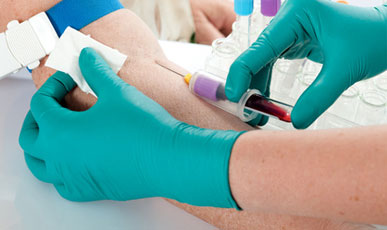Why Fasting Before Blood Tests is Important?

Many of us at some time or another have required a blood test and been instructed to fast beforehand. Waiting to have your blood taken while trying to stay awake, sans the regular wake up coffee, can be an extremely trying experience. I have often wondered about the necessity of fasting before a blood test, convinced that the doctor is needlessly trying to make my life miserable.
However, there are sound medical reasons for requiring certain blood tests to be done on an empty stomach. These blood tests are of different types, the most common being those required for testing blood glucose levels and lipid (cholesterol) levels. Apart from these, there are other tests such as tests for blood iron levels and GGT (gamma-glutamyl transferase) test for liver disease that require you to fast beforehand.
The levels of lipids including LDL cholesterol, HDL cholesterol and triglycerides as well as levels of glucose and other factors fluctuate throughout the day depending on the food you have eaten. Fasting ensures that your baseline levels of lipids and glucose are measured, not levels that have been affected by food.
In the case of testing for blood sugar levels in diabetics, the guidelines for defining a person as diabetic or pre-diabetic are based on standardized situations such as fasting. For example, a patient with a fasting blood sugar level greater than 125 mg/dl would be defined as diabetic while a patient with fasting blood sugar levels between 100 mg/dl and 125 mg/dl would be diagnosed as pre-diabetic. Pre-diabetics have a greater chance of developing diabetes. From this example, one can see how eating a snack a couple of hours before your blood test could affect not only the result but also diagnosis and the treatment.
The same guidelines apply to blood tests for lipids. The levels of blood lipid levels that are used to determine risk and the need for treatment are all based on fasting values. If the patient has not been fasting then blood lipid levels could be higher by a considerable margin and require more aggressive treatment.
For fasting blood sugar levels, guidelines require you to not eat for at least 8 hours prior to the test while for lipid tests the figure increases to 10 to 12 hours. You are allowed to have plain water as this will not affect the test results.
Your doctor will inform you on the exact amount of time that you have to fast for, prior to your test.
Reference